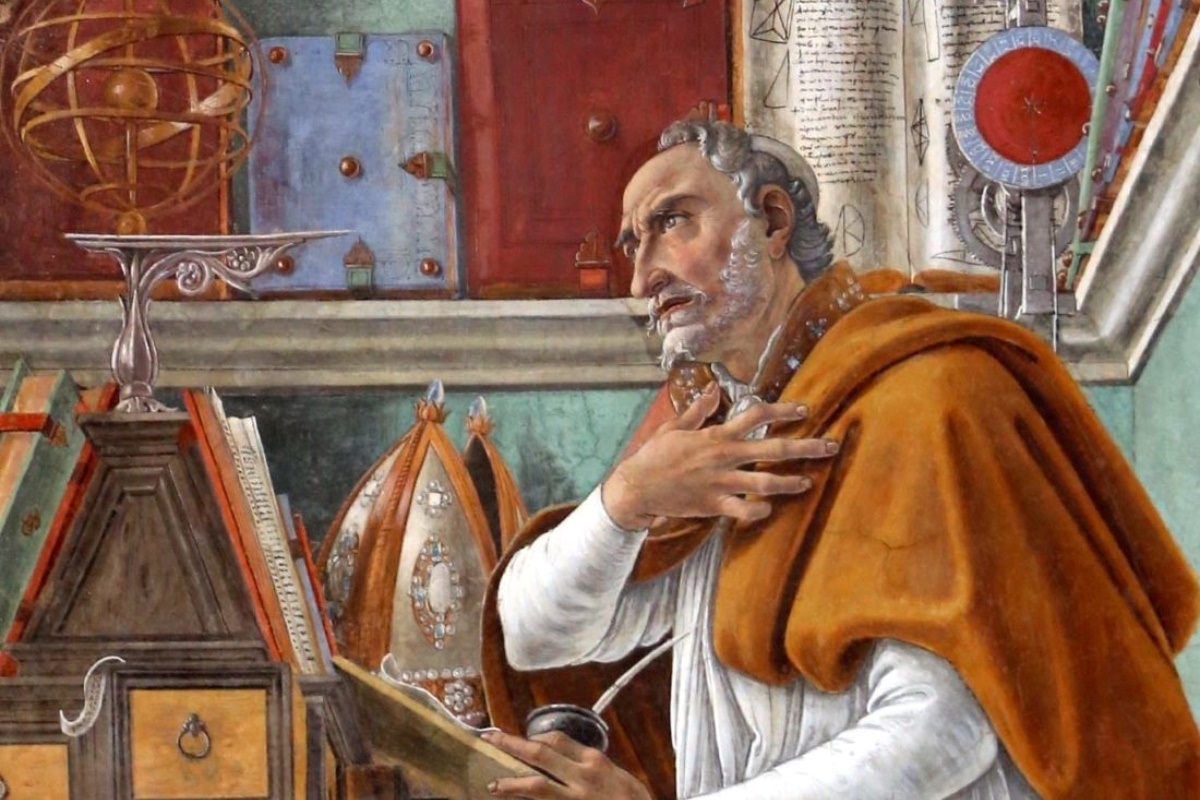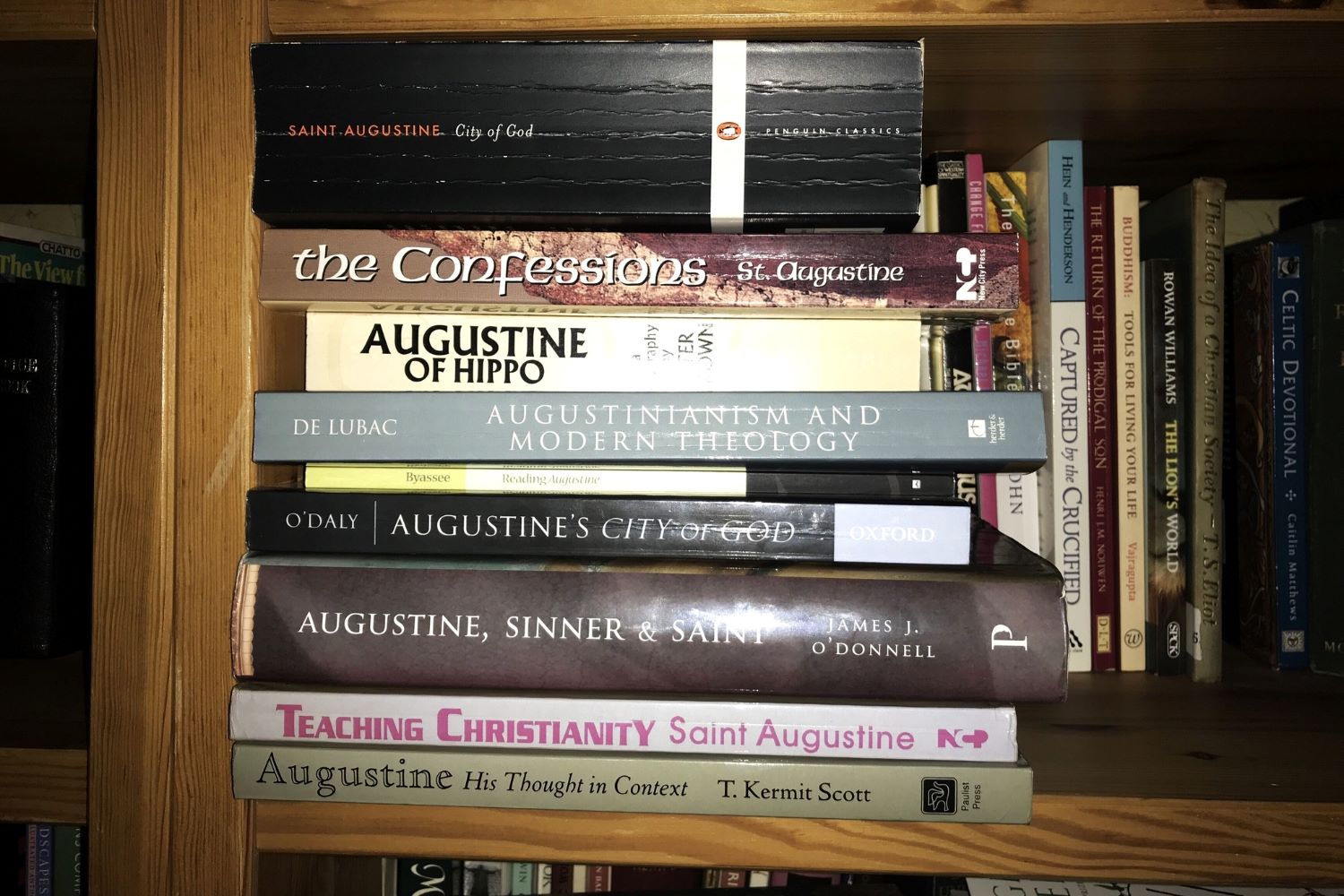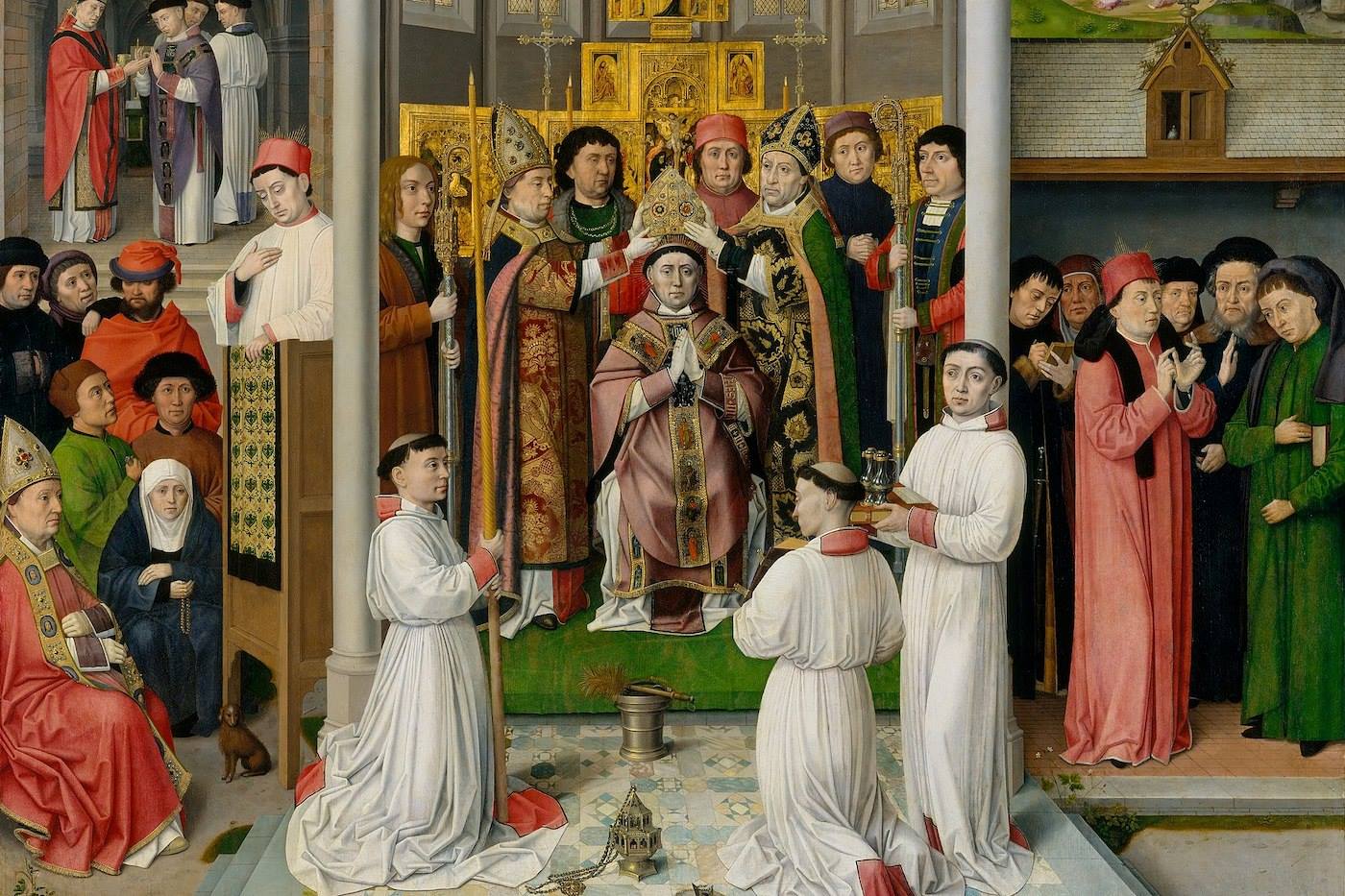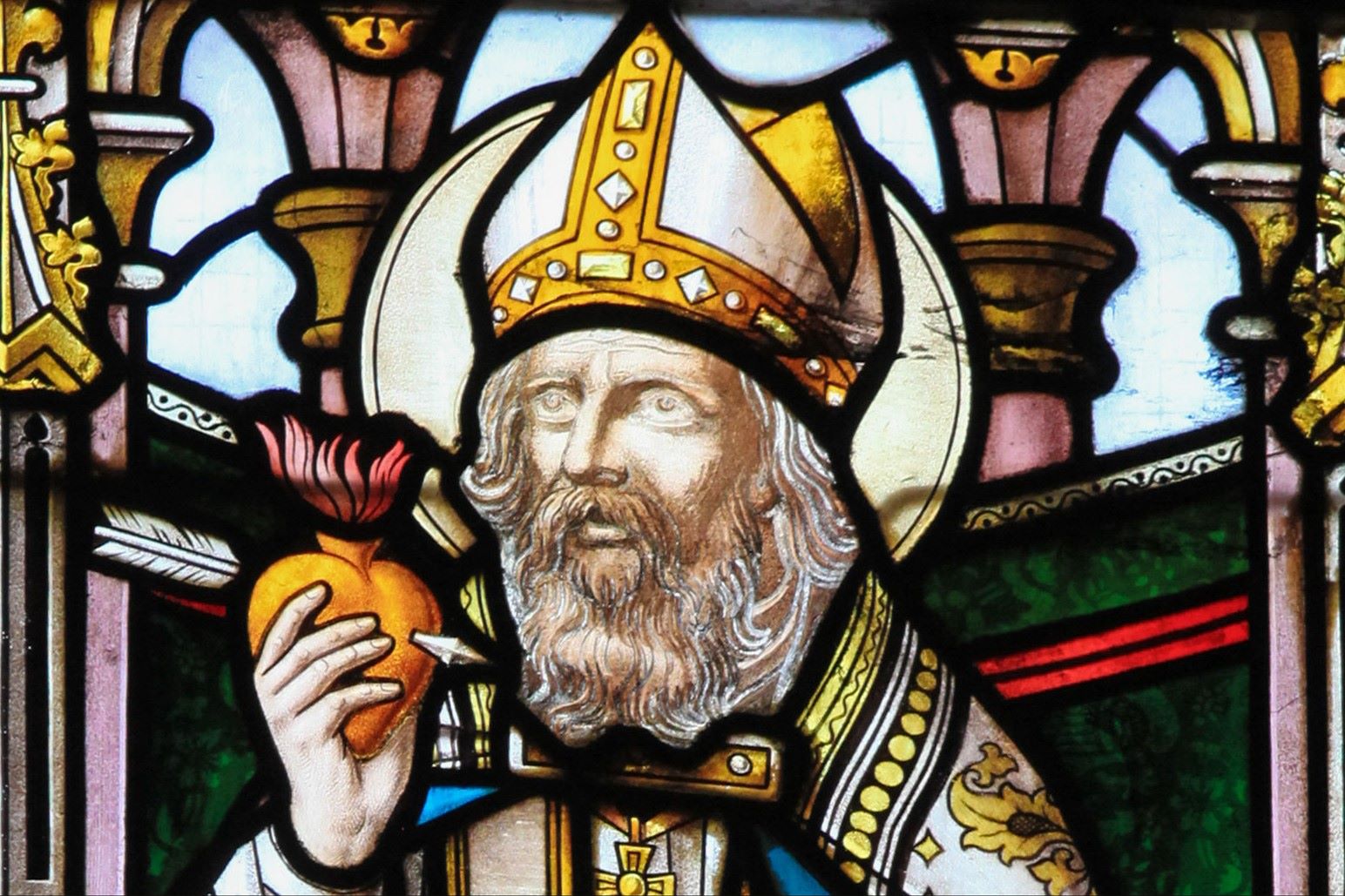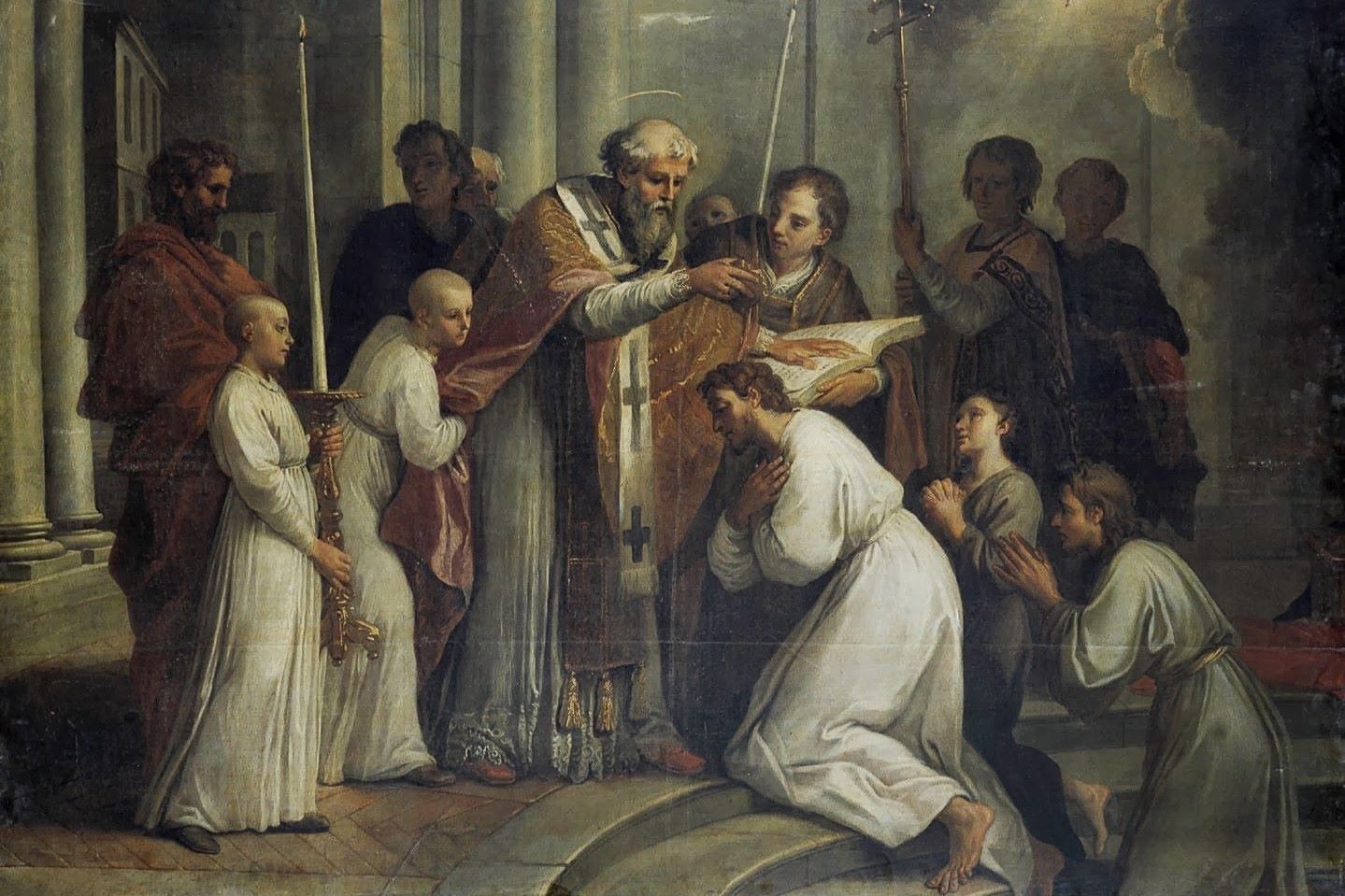Home>Theology and Spirituality>Augustine: You Are What You Love


Theology and Spirituality
Augustine: You Are What You Love
Published: February 10, 2024
Jason DeRose, Managing Editor at Christian.net, uses his expertise in religion and journalism to deepen understanding of faith's societal impacts. His editorial leadership, coupled with a strong academic background, enriches the platform’s diverse content, earning him recognition in both journalism and religious circles.
Explore Augustine's profound insights on theology and spirituality in "You Are What You Love." Discover the transformative power of love and its impact on the human soul.
(Many of the links in this article redirect to a specific reviewed product. Your purchase of these products through affiliate links helps to generate commission for Christian.net, at no extra cost. Learn more)
Table of Contents
Introduction
Augustine of Hippo, a towering figure in Christian theology, once proclaimed, "You are what you love." This profound statement encapsulates a fundamental aspect of human nature and spirituality that continues to resonate across centuries. At its core, Augustine's insight delves into the intricate interplay between our deepest desires, the formation of our character, and the pursuit of spiritual fulfillment.
The concept of being what we love speaks to the essence of human identity. It suggests that our true nature is not solely defined by our rational thoughts or intellectual beliefs, but rather by the objects of our affection and the pursuits that captivate our hearts. In essence, our loves shape our lives, molding our character and influencing our actions in profound ways.
As we embark on an exploration of Augustine's profound wisdom, it becomes evident that the human experience is intricately intertwined with the pursuit of love and fulfillment. Augustine's teachings invite us to reflect on the nature of our desires, the formation of our character, and the transformative power of spiritual practices. By delving into these profound insights, we gain a deeper understanding of our intrinsic yearnings and the profound implications they hold for our lives.
Throughout this journey, we will unravel the intricate dynamics of desire, habit formation, the significance of worship, and the cultivation of virtue. Each of these elements plays a pivotal role in shaping our spiritual journey and illuminating the path toward a more profound connection with the divine. As we delve into Augustine's timeless wisdom, we are invited to contemplate the profound implications of being what we love and the transformative power it holds for our lives.
In the subsequent sections, we will delve into the formation of desires, the role of habits, the importance of worship, and the practice of virtue, each offering invaluable insights into the profound wisdom of Augustine and its enduring relevance in our lives.
Read more: Augustine: Love And Do What You Will
The Formation of Desires
At the heart of Augustine's profound teachings lies a deep understanding of the human condition, particularly the intricate formation of desires that shape our lives. Augustine posited that our desires are not arbitrary impulses but rather deeply ingrained longings that profoundly influence our thoughts, actions, and ultimately, our character.
Central to Augustine's insights is the recognition that human desires are inherently oriented toward seeking fulfillment and happiness. However, he astutely observed that the objects of our desires often fall short of providing lasting satisfaction. This inherent tension between our longing for fulfillment and the transient nature of worldly pursuits lies at the crux of Augustine's teachings on desire.
Augustine's seminal work, "Confessions," offers profound introspection into the nature of desire, as he candidly reflects on his own journey of seeking fulfillment in earthly pleasures. Through his introspective exploration, Augustine unveils the profound truth that human desires are ultimately restless until they find their ultimate fulfillment in the divine.
Furthermore, Augustine's teachings on desire underscore the profound impact of our loves and longings on the formation of our character. He posits that our desires not only reflect our innermost yearnings but also play a pivotal role in shaping our moral disposition and guiding our choices.
In essence, Augustine's insights compel us to reflect on the nature of our desires and the profound implications they hold for our spiritual journey. By recognizing the formative power of our desires, we are invited to embark on a transformative journey of introspection and discernment, seeking to align our longings with that which is truly fulfilling and life-giving.
As we navigate the complexities of human desires, Augustine's wisdom serves as a guiding light, illuminating the path toward a more profound understanding of our innermost yearnings and the transformative power of redirecting our desires toward the eternal and transcendent. In doing so, we embark on a journey of profound spiritual awakening, recognizing that our desires are not merely fleeting impulses but profound indicators of our deepest longings for meaning, purpose, and ultimately, union with the divine.
The Role of Habits
Central to Augustine's profound insights into the human experience is the pivotal role of habits in shaping our character and guiding our spiritual journey. Augustine expounds on the transformative power of habits, emphasizing their profound influence on our thoughts, actions, and ultimately, our moral disposition.
Augustine's teachings on habits stem from his profound understanding of human nature and the intricate interplay between our actions and the formation of our character. He posits that our habits, whether virtuous or detrimental, are not merely isolated behaviors but rather ingrained patterns that mold our moral fabric and shape the trajectory of our lives.
Furthermore, Augustine delves into the profound implications of habit formation, recognizing that our repeated actions not only reflect our inner disposition but also have the power to mold and reinforce our character. He astutely observes that the cultivation of virtuous habits leads to the formation of a virtuous character, while the indulgence in detrimental habits can lead to moral decay and spiritual estrangement.
In essence, Augustine's teachings on habits invite us to recognize the formative power of our daily actions and the profound implications they hold for our spiritual well-being. By cultivating habits that are aligned with virtue, love, and the pursuit of the divine, we embark on a transformative journey of character formation and spiritual growth.
Moreover, Augustine's insights on habits underscore the transformative potential of intentional practice and discipline in shaping our moral disposition. He emphasizes the importance of cultivating habits that are rooted in love, compassion, and righteousness, recognizing that these virtues not only enrich our lives but also reflect the transformative work of grace within us.
As we reflect on Augustine's profound wisdom regarding the role of habits, we are invited to embark on a journey of intentional self-examination and discernment. By cultivating habits that are aligned with our deepest values and aspirations, we participate in the transformative work of shaping our character and nurturing a profound connection with the divine.
In essence, Augustine's teachings on habits serve as a guiding light, illuminating the path toward intentional living, moral excellence, and spiritual flourishing. Through the cultivation of virtuous habits, we embody the transformative power of love and grace, shaping our lives in alignment with our deepest yearnings for spiritual fulfillment and moral integrity.
The Importance of Worship
At the heart of Augustine's profound theological insights lies a deep understanding of the transformative power of worship in shaping the human spirit and nurturing a profound connection with the divine. Augustine expounds on the significance of worship as a transformative practice that not only honors the sacred but also enriches the inner landscape of the worshipper.
Central to Augustine's teachings is the recognition that worship transcends mere ritualistic observance; it is a profound expression of reverence, gratitude, and awe toward the divine. Through worship, individuals are invited to cultivate a deep sense of spiritual attentiveness, acknowledging the transcendent presence of the divine in their lives. Augustine underscores the transformative potential of worship, emphasizing its capacity to elevate the human spirit, instill a sense of humility, and foster a profound awareness of the sacred within the worshipper.
Furthermore, Augustine's teachings on worship extend beyond the confines of formal religious ceremonies, encompassing a holistic orientation toward life itself as an act of worship. He invites individuals to embrace a way of being that is imbued with reverence, compassion, and a deep sense of interconnectedness with the divine and all creation. In doing so, Augustine illuminates the profound truth that worship is not confined to sacred spaces and designated times but permeates every facet of human existence, infusing it with sacred meaning and purpose.
Moreover, Augustine's insights on the importance of worship underscore its role in nurturing spiritual growth and fostering a sense of communal solidarity. He emphasizes the transformative power of collective worship, recognizing its capacity to unite individuals in a shared expression of devotion, prayer, and communal reflection. Through communal worship, individuals are invited to partake in a sacred journey of collective reverence, solidarity, and mutual support, fostering a sense of belonging within a spiritual community.
In essence, Augustine's teachings on the importance of worship invite individuals to embrace a way of life that is steeped in reverence, gratitude, and a profound sense of awe toward the divine. Through the transformative practice of worship, individuals are invited to cultivate a deep spiritual attentiveness, nurture a sense of communal solidarity, and embody a way of being that honors the sacred in every facet of human existence. Augustine's profound insights into the transformative power of worship continue to resonate as a guiding light, illuminating the path toward a life imbued with sacred meaning, spiritual growth, and a profound connection with the divine.
The Practice of Virtue
The concept of virtue holds a central place in Augustine's profound theological and philosophical insights, embodying the transformative power of moral excellence and spiritual integrity. Augustine expounds on the practice of virtue as a transformative journey of character formation, rooted in the pursuit of love, righteousness, and the embodiment of divine virtues in everyday life.
Central to Augustine's teachings is the recognition that the practice of virtue transcends mere adherence to moral precepts; it is a profound orientation of the heart and a way of being that reflects the transformative work of grace within the individual. Augustine invites individuals to cultivate virtues such as love, compassion, humility, and integrity, recognizing their profound capacity to shape the moral fabric of one's character and guide their actions toward righteousness and spiritual flourishing.
Moreover, Augustine's insights on the practice of virtue underscore the transformative potential of intentional moral living, emphasizing the profound impact of virtuous actions in shaping the inner disposition of the individual. He posits that the practice of virtue is not merely a moral obligation but a profound expression of one's deepest yearnings for spiritual fulfillment and moral integrity. By embodying virtues such as love and compassion, individuals participate in the transformative work of grace, nurturing a profound connection with the divine and enriching the fabric of human relationships.
Furthermore, Augustine's teachings on the practice of virtue extend beyond individual moral conduct, encompassing a communal orientation toward justice, compassion, and solidarity. He emphasizes the transformative power of virtuous living in fostering a sense of communal harmony, social justice, and the pursuit of the common good. Through the practice of virtue, individuals are invited to embody a way of life that reflects the transformative power of love and righteousness, fostering a sense of communal solidarity and mutual support within the human community.
In essence, Augustine's profound insights into the practice of virtue serve as a guiding light, illuminating the path toward intentional moral living, spiritual flourishing, and the embodiment of divine virtues in everyday life. Through the transformative practice of virtue, individuals are invited to cultivate a moral disposition rooted in love, compassion, and righteousness, shaping their lives in alignment with their deepest yearnings for spiritual fulfillment and the pursuit of the divine.
Conclusion
In conclusion, Augustine's profound insights into the nature of human desires, the transformative power of habits, the significance of worship, and the practice of virtue offer timeless wisdom that continues to resonate with profound relevance in our lives. Augustine's proclamation, "You are what you love," encapsulates the profound truth that our deepest desires and loves shape our character, influence our actions, and ultimately define our spiritual journey.
The exploration of desire reveals the inherent tension between our longing for fulfillment and the transient nature of worldly pursuits. Augustine's introspective reflections in "Confessions" invite us to recognize the restlessness of our desires and the transformative potential of redirecting them toward the eternal and transcendent. By aligning our longings with that which is truly fulfilling and life-giving, we embark on a transformative journey of spiritual awakening and fulfillment.
Furthermore, Augustine's teachings on habits underscore the formative power of our daily actions in shaping our character and guiding our spiritual journey. By cultivating virtuous habits rooted in love, compassion, and righteousness, we participate in the transformative work of grace, shaping our lives in alignment with our deepest yearnings for spiritual fulfillment and moral integrity.
The importance of worship as a transformative practice extends beyond ritualistic observance, encompassing a holistic orientation toward life itself as an act of worship. Augustine's insights invite us to embrace a way of being imbued with reverence, gratitude, and a profound sense of awe toward the divine, infusing every facet of human existence with sacred meaning and purpose.
Lastly, the practice of virtue embodies the transformative power of moral excellence and spiritual integrity. Augustine's teachings emphasize the profound impact of virtuous actions in shaping the inner disposition of the individual and fostering communal harmony, social justice, and the pursuit of the common good.
In essence, Augustine's profound wisdom illuminates the path toward intentional living, moral excellence, and spiritual flourishing. By embracing the transformative power of love, grace, and virtue, we embark on a journey of profound spiritual awakening, shaping our lives in alignment with our deepest yearnings for spiritual fulfillment and the pursuit of the divine.


